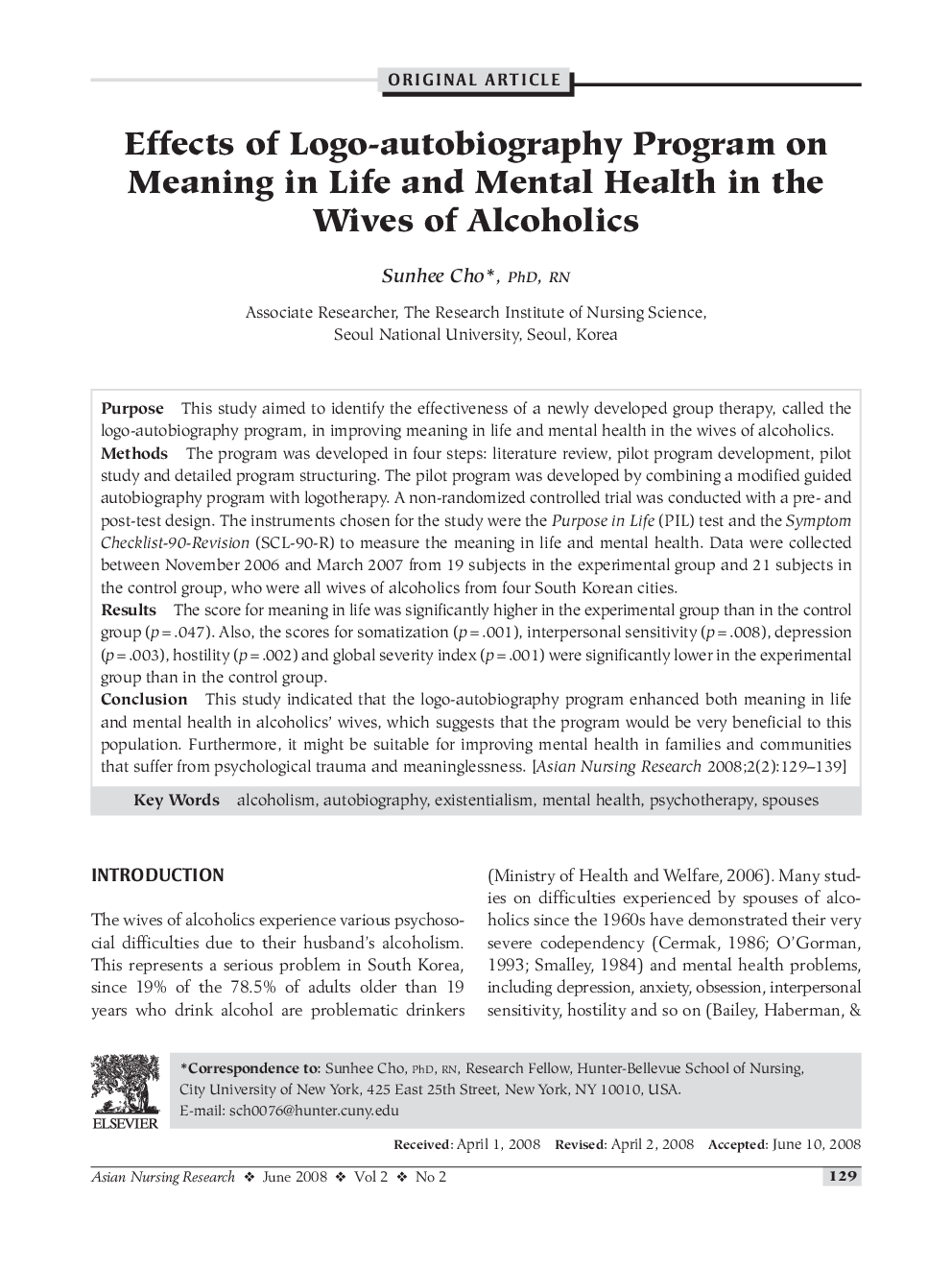| Article ID | Journal | Published Year | Pages | File Type |
|---|---|---|---|---|
| 2645331 | Asian Nursing Research | 2008 | 11 Pages |
PurposeThis study aimed to identify the effectiveness of a newly developed group therapy, called the logo-autobiography program, in improving meaning in life and mental health in the wives of alcoholics.MethodsThe program was developed in four steps: literature review, pilot program development, pilot study and detailed program structuring. The pilot program was developed by combining a modified guided autobiography program with logotherapy. A non-randomized controlled trial was conducted with a pre- and post-test design. The instruments chosen for the study were the Purpose in Life (PIL) test and the Symptom Checklist-90-Revision (SCL-90-R) to measure the meaning in life and mental health. Data were collected between November 2006 and March 2007 from 19 subjects in the experimental group and 21 subjects in the control group, who were all wives of alcoholics from four South Korean cities.ResultsThe score for meaning in life was significantly higher in the experimental group than in the control group (p = .047). Also, the scores for somatization (p = .001), interpersonal sensitivity (p = .008), depression (p = .003), hostility (p = .002) and global severity index (p = .001) were significantly lower in the experimental group than in the control group.ConclusionThis study indicated that the logo-autobiography program enhanced both meaning in life and mental health in alcoholics' wives, which suggests that the program would be very beneficial to this population. Furthermore, it might be suitable for improving mental health in families and communities that suffer from psychological trauma and meaninglessness.
